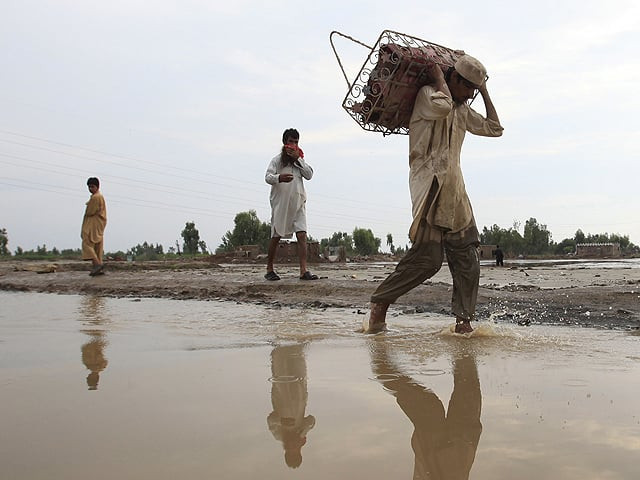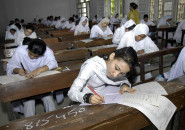Disaster management: ‘Rapid response key to mitigate effects of natural disasters’
Unity among masses, understanding social responsibility necessary for progress, say experts.

These factors were highlighted at a seminar, Disaster Management, organised by the Pharmacy Graduates Association (PGA) in collaboration with the Pakistan Medical Association (PMA) and the Lions Club International at the PMA house on Saturday. PHOTO: REUTERS/FILE
Medical experts have stressed that rapid response during and after a disaster strikes could reduce the impact of destruction on people and the environment. It was because of the lack of preventive measure that massive destruction was caused during floods. Creating awareness among the masses is also indispensable.
These factors were highlighted at a seminar, Disaster Management, organised by the Pharmacy Graduates Association (PGA) in collaboration with the Pakistan Medical Association (PMA) and the Lions Club International at the PMA house on Saturday.
A number of teachers, medical faculty and students of different medical colleges attended the event.
“We have laws regarding disaster management but they have never been implemented,” said PMA general-secretary, Dr Qazi Muhammad Wasiq. He said that public institutions were not playing their due role, adding that the National Disaster Management Authority was also getting information from the media.
Explaining the difference between man-made and natural disasters, Dr Wasiq said that people couldn’t minimise destruction caused by natural disasters like earthquake and floods. “But we can at least offer immediate help to the affected communities. On the other hand, one could curtail losses caused by the man-made disasters such as fire, civil conflicts, structural collapse and terrorism.”
“There was time when students were given basic knowledge through scouts and civil defence trainings at schools and colleges. It should be revived now.”
Dr Sumbul Shamim, the dean of the faculty and pharmaceutical sciences of the Dow University of Health Sciences, said that awareness, mitigation, response and recovery were interconnected, adding that understanding all of them was very important. “Each component is dependent on the other,” she stressed.
She explained that in addition to the impact on environment, human health was severely affected after natural disasters. Dr Shamim also elaborated the complex emergencies in the aftermath of a calamity such as breakdown of authority, looting and attacks on strategic installations.
Zafar Iqbal of the Lions Club International stressed that an individual should play his role for the development and progress of the society. He said that unity among masses and understanding social responsibility was necessary to build a civilised society. “We have to perform our role positively. We have to look at how people suffer after disasters,” he added.
“We are not sincere with ourselves,” said Dr Abdullah Dharejo of Sindh University. “We can’t progress until and unless we understand the due role of every human being in the society.”
Dr Mirza Taswar Baig of the PGA was of the view that lack of management created so many issues in Pakistan. “Awareness and management before any disaster strikes are very important.”
He explained the three stages of disasters - efforts taken before, during and after the disaster strikes. “These are called managerial skills. Late response could multiply the effects of devastation.”
Published in The Express Tribune, September 1st, 2013.



















COMMENTS
Comments are moderated and generally will be posted if they are on-topic and not abusive.
For more information, please see our Comments FAQ